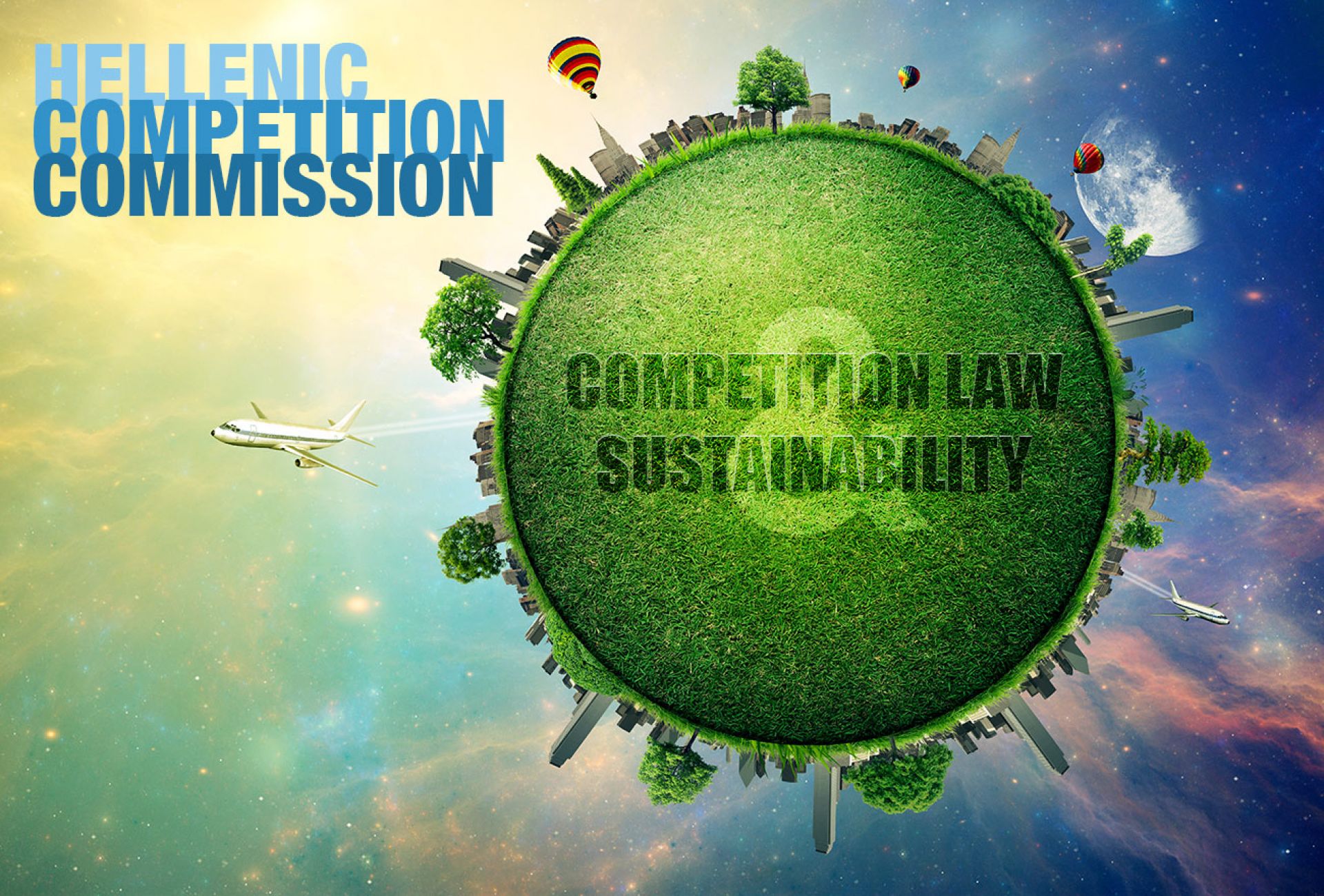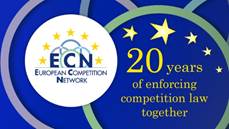The EU has become a world leader in promoting sustainable development, applying the highest social and environmental standards, promoting the Paris Agreement on Climate Change as well as innovative concepts such as the circular economy. In this context, the EU and its Member States are actively promoting the achievement of the Sustainable Development Goals (SDGs) through various regulatory instruments, but also by promoting self-regulation by businesses, in cooperation with all stakeholders. The overall achievement of SDGs by 2020 is a major challenge for public authorities worldwide. Some NCAs have already taken initiatives in this direction. For example, the Dutch Authority (Netherland Authority for Consumers and Markets, ACM) recently announced proposals for sustainability and competition guidelines, thus providing guidance on the business-to-business application of competition law to sustainability agreements under Article 101 (1) and (3) TFEU. Other National Competition Authorities have added the promotion of green growth to their targets for the year 2020.
In recent years, companies in Greece are called upon to deal with the consequences of the crisis and their consequent capital reduction, which directly affects their growth strategy. From the point of view of private initiative, at the level of long-term planning, there is a significant development of renewable energy sources, initiatives in shipping, energy saving actions in buildings and industry, etc. However, small and medium enterprises in Greece lag behind in adopting green and technologically advanced production methods as part of a long-term strategy. In this context, significant opportunities for cooperation emerge, through the exchange of knowledge and skills, in order to develop new business models and create innovative economic ecosystems.
In this context, the Hellenic Competition Commission has taken the initiative to launch a dialogue to find and integrate methods and tools of valuation, analysis and assessment of business practices in the field of economics and competition law, taking into account the extent to which they favor or suspend specific sustainable solutions, always committed to ensuring legal certainty for all parties involved.
Undoubtedly, competition law can address sustainability issues. Key issues to consider include:
- the extent to which agreements between competitors or companies throughout the value chain could be approved to enhance environmental sustainability and sustainable development objectives, either as not falling under the Article 101 (1) or exempted under Article 101 (3) TFEU.
- whether the abusive practices of a dominant company under Article 102 TFEU may also include anti-competitive practices which also constitute breaches of environmental law or which restrict sustainable development or, in exceptional cases, the need to defend sustainability in relation to conduct that could otherwise be described as an abuse of dominant position, provided that the structure of competition in the market is not affected and
- the extent to which sustainability issues could be taken into account when assessing mergers and acquisitions.
To begin an open dialogue, the Hellenic Competition Commission (HCC) has published a Staff Discussion Paper (see attached files), where it analyses convergence areas and conflicts between sustainable development and competition law in all its aspects. The paper highlights the parameters of sustainable development that can be promoted either without proceeding in any changes with regard to competition law enforcement, or by following a smooth adaptation of the notion of sustainable development followed by specific suggestions, or perhaps by adopting an innovative approach or even an adjustment of the established theories of harm.
The main suggestions of the paper are as follows:
- The Hellenic Competition Commission (HCC) should facilitate the transition to a Green economy and support innovation within the Green economy taking into account possible externalities from generation to generation, through the use of new tools and approaches in order to understand consumer behavior.
- Competition law should become more synchronised with the broader constitutional values and programmatic aims regarding sustainability, at the international, EU and national levels.
- It is deemed necessary to provide undertakings with the legal certainty they need in order to make the necessary investments.This requires more targeted competition law interventions that provide a clear set of rules to follow. Collecting information on the various business strategies and the issues they face in proceeding to this Green economy transition are also crucial, so as to adapt competition law enforcement to the specific circumstances.
- This may require close collaboration with other regulatory authorities and eventually a common 'Advice Unit' may be formed by experts from a variety of regulatory authorities, in order to provide informal consultation on proposed sustainability-related innovations.
- This process may be facilitated with the development of a competition law sustainability 'sandbox'[1]in order, for the industry to experiment with new business formats that aim to realise more quickly and efficiently sustainability goals, and which involve cooperation between competing undertakings or even more permanent changes in market structure in order to be accomplished.
- Another suggestion would be to issue general guidelines to clarify under which conditions the private sector may take cooperative action to promote the attainment of sustainability objectives, as already realised in certain countries. The HCC is currently envisaging the adoption of sustainability guidelines, following a process of public consultation with the industry and other stakeholders.
To launch a public consultation on all the above issues, HCC organised a digital conference on “Sustainable development and competition law - Towards a Green Growth regulatory osmosis”. The teleconference was addressed by Her Excellency the President of the Hellenic Republic, Ms. K. Sakellaropoulou, the Minister of Development and Investment, Mr. A. Georgiadis, the Director General of the Directorate-General for Competition of the European Commission, Mr. Olivier Guersant, as well as the member of the Board and head of the SEV competition working group, Mr. A. Panteliades. Contributed to the event high officials Representatives of the European Commission, the OECD and other international organizations, several heads of National Competition Authorities, judges, academics, companies, and representatives of economic and social organizations.
In particular, the teleconference covered four key topics, namely:
- the extent that competition law can be a burden to innovative synergies between companies in order to promote sustainability,
- the legal, policy and business approach to the possibility and the prospects of integrating environmental and other social sustainability concepts into the application of competition law,
- implications of Green Growth Agenda on the organization of the economy and public policy in the field of economic regulation in Greece and
- the prospects of adjusting competition law to different objectives of sustainability and protection of social justice in the next decade.
Watch the video of the Tele-Conference.
Following the conference during which various strands of thought were expressed and relevant experience was exchanged, the HCC in collaboration with the Netherland Authority for Consumers and Markets (ACM), which has already announced the adoption of guidelines on sustainability and competition, invited Professors Anastasios Xepapadeas, Eftihios Sartzetakis and Roman Inderst, to complete a technical report drawing on concepts and tools, mainly from environmental economics, to answer the question of what forms of quantitative assessment could be applied to take account of the broader social benefits brought by environmental sustainability, in the context of competitive law enforcement.
The Technical Report on Sustainability and Competition is also published in view of the initiative undertaken by the European Commission in the framework of the Green Deal, with the organization of a Conference during February 2021, following a public consultation. You can read the Technical Report here.
[1] A sandbox is defined as ‘a safe space where both regulated and unregulated firms can experiment with innovative products, services, business models and delivery mechanisms without immediately incurring all the normal regulatory consequences of engaging in such activity’: Financial Conduct Authority, “Regulatory Sandbox”, (2015) Research Paper.
Attached is the Staff Discussion Paper of HCC's Initiative, the Programme of the Teleconference and the Technical Report on Sustainability and Competition.


